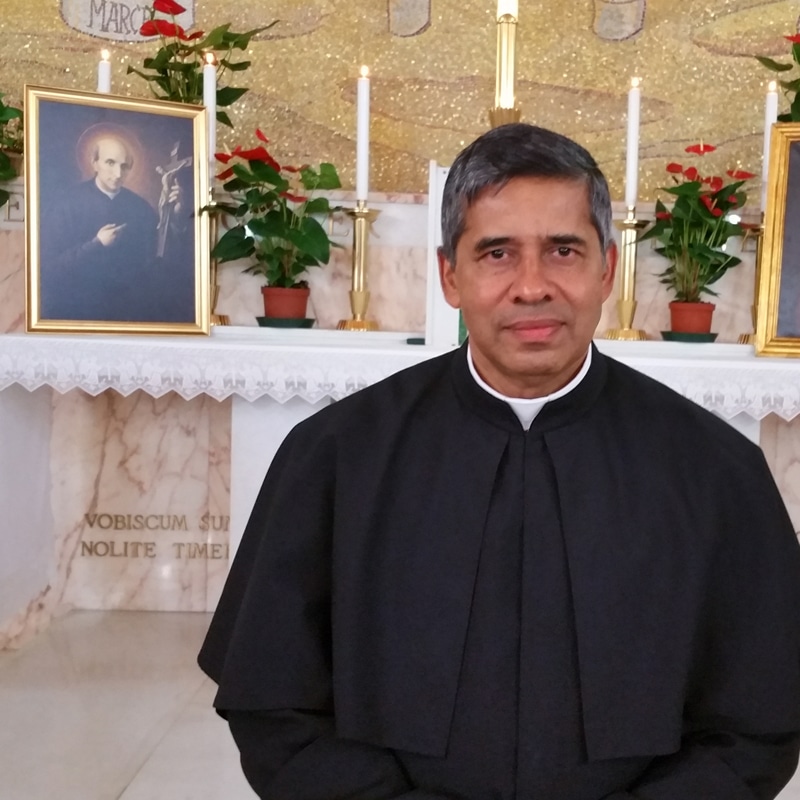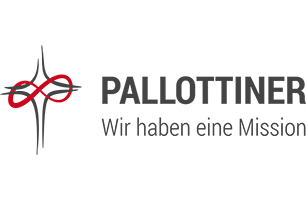
Interview
The Rev. Fr. Jacob Nampudakam
Rev. Fr. Jacob Nampudakam is the re-elected Rector General of the Society of the Catholic Apostolate. He is a member of the Epiphany of the Lord Province, Nagpur, India and was ordained priest in 1981. After ordination, he served the Society in various capacities: as spiritual director, director of Preparatory Formation, director of the Pallottine Animation Center, General Secretary, General Consultor and Rector General of the Society since 2010. For 12 years he was also the General Secretary for Formation. He graduated in Philosophy and Theology and also holds a Licentiate in Psychology from the Institute of Psychology at the Gregorian University, Rome. In an interview with Janina Beckmann, head of PR for the Heart of Jesus Province, he talks about past, present and future tasks for the Pallottine family and the church in general.
If you look back on your last term as Rector General, what were the most pressing questions? Or the most important ones?
Our number one priority was spiritual renewal. The second challenge was always the realization of our charism in the service of the church. The third priority was cooperation. I believe we need to look at the entire Society as one family, consisting of members from Germany, Poland, Italy, India and so on. We are all Pallottines. Our common mission should be to create the spirit of one family, to give and take, to share resources and people. We need to work with one common agenda. Other practical challenges included the opening of a number of new missions like the ones in Vietnam, Cuba and Malawi.
How are the new Missions doing so far?
The mission in Peru is going very well, Vietnam is promising. Malawi has just started. Some missions lack members – like Mexico and Papua New Guinea. We need more people there. The same goes for South Korea. Some others lack material resources.
These days the community is facing very different difficulties and struggles all over the world. How is it possible for you – as a General – to get them all together, to get them talking. Are there even similarities?
There are certain things which are common. But of course there are also differences in each country. What is common is: we are all Pallottines. But the apostolic priorities can be different. For example in India, education is a priority. There are many Pallottine schools. When you come to Germany, the question is how to revive the Catholic faith. Interreligious and ecumenical dialogue is also very important here. In Africa we engage more in social and charitable activities as well as in faith building. In the end the family is one: but the situations are different.
What do you see as the main task for the church in Europe these days? You already mentioned reviving faith …
Wherever there is material growth, usually the level of faith goes down. Families become smaller. You begin to feel that you do not need others that much. It is an automatic response: if you have everything, you feel like you are someone. Whereas when you are poor, you inevitably need the other person.
We are starting new “missions” these days but in the end our mission is everywhere. Europe is also a big mission for us. It’s a periphery of faith. “Blessed are the poor in spirit, for theirs is the kingdom of heaven” (Mat 5,3). Materialism leads to a sense of self-sufficiency – psychologically and spiritually.
It is a problem of human nature and not only of the West. It will be the same in the East and will be the same in other countries too. The question is how to bring about conversion, a change of heart. I also believe in this principle of psychology. If we want change, we are to feel the pain. A psychological pain. The same is true with physical pain as well. If you have problems with your tooth, you go to a medical doctor. A leper, for example, does not feel pain any more. He is numb. For a change of heart – spiritually or psychologically – we have to feel the pain. We have to feel that we are poor and broken. The profound truth is that we are all poor. The only thing we can create at times is an illusion that we are rich. Paradoxically, the deepest experience of our own poverty is the first step towards conversion. This in itself is a mission. ((01.02.17; jb))
Recommended









